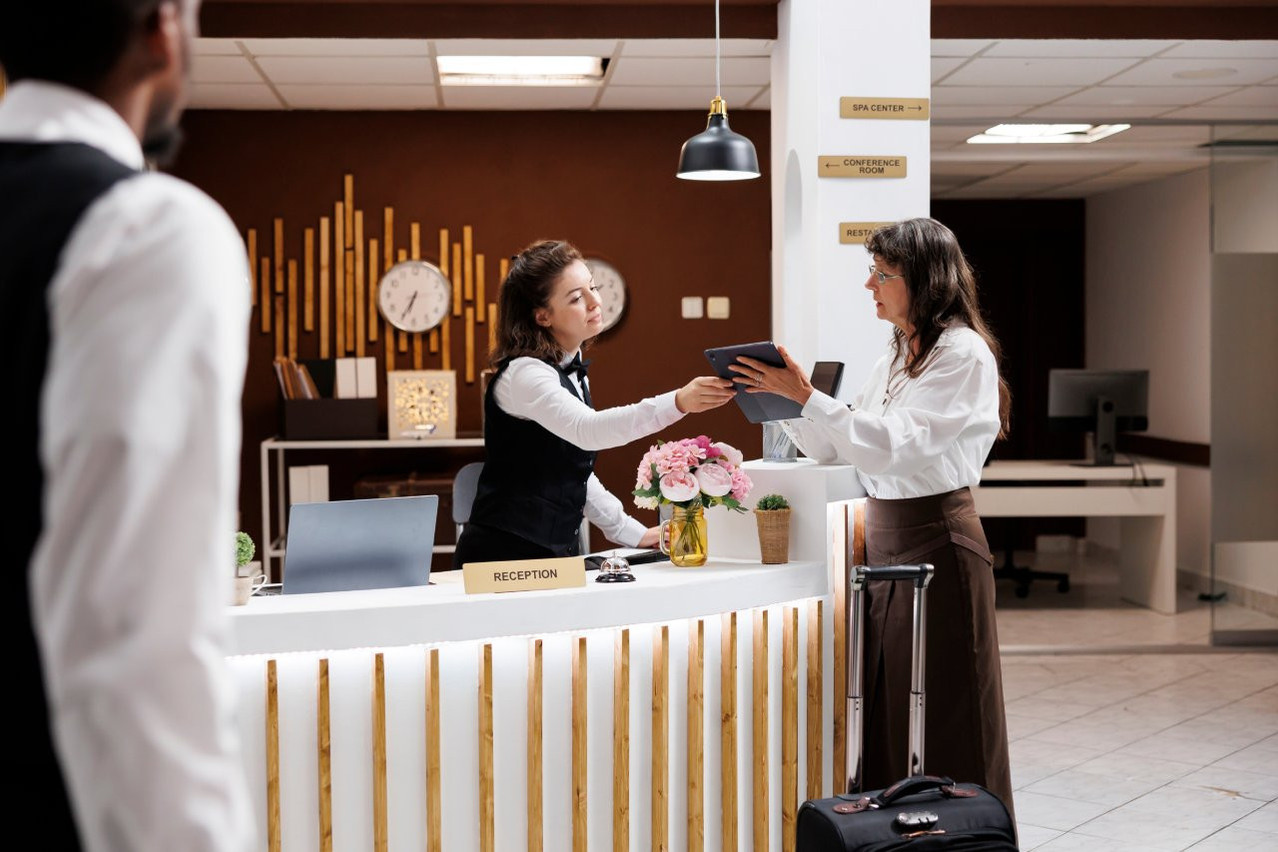“There used to be a lot of paperwork,” says Horesca secretary general , who is currently in the middle of an information phase with industry professionals. “All that paperwork was sometimes the last straw. This reform will make things easier for all hoteliers.”
From 1 September 2025, accommodation establishments in Luxembourg will in fact have to adopt a new digital system for managing accommodation records. The result of a law passed in February 2025, this obligation applies to all hotels, campsites, bed and breakfasts, youth hostels and other forms of tourist accommodation in the grand duchy.
Supported by the economy ministry, the reform aims to simplify administrative procedures, improve the quality of tourism statistics and enhance public safety.
End of paper
Until now, each accommodation provider had to have their customers fill in an accommodation form, often by hand. From September, this process will be entirely digital. Every person aged 15 or over will now have to fill in an online form, either before their stay via Guichet.lu or on a dedicated mobile app at the time of arrival.
A modular system
For operators, several options are available: use the national platform developed by the government to encode the forms; integrate the system directly into their hotel software via a programming interface; or scan identity documents to make it easier to register and pre-fill the forms.
Entry can be carried out by the customer themselves (via QR code, email or direct link) or by reception staff if required.
Better use of data
All data is centralised in a secure national database that can only be consulted by the relevant authorities. The aim is to guarantee more reliable information that can be used in real time for safety purposes, but also to produce more detailed tourism statistics that are useful to the public authorities.
“In future, we will have a more detailed view of who the tourists are and above all their true numbers, because all travellers will have to be declared--even children, for example, which wasn’t necessarily the case before,” says Martellini.
The data collected will be kept for six months and then automatically deleted, in accordance with data protection legislation.
Unchanged rules
While the tools are evolving, the legal obligations of professionals are not changing. They remain responsible for checking the identity of customers welcomed to their establishment and making sure each form is correctly completed, dated and transmitted. They are also still required to ensure that reporting deadlines are met.
The online tool provides alerts in the event of anomalies or missing forms. The idea is to prevent oversights or errors, which are common in manual processes.
Up to €2,000 in assistance
Temporary financial assistance from the government is available to support this transition. Each establishment can benefit from a one-off grant of up to €2,000 to cover the purchase of computer hardware, the necessary software or staff training.
To benefit, an application must be submitted to the economy ministry via Guichet.lu before 1 October this year. “However, this does not constitute a big investment,” comments Martellini. “A few hundred euros for the purchase of a tablet or dedicated phone, possibly IT development costs for professionals who express the need, but not much more.”
A welcome reform
The digitisation of the accommodation form is generally well received by players in the sector, who see it as a time-saver and a way to simplify administrative obligations, particularly in busy or understaffed establishments.
The reform is part of the strategy to digitalise the Luxembourg tourism sector and marks a turning point towards more modern, centralised management of visitor flows. Martellini concludes: “This new approach will also benefit the customer, who will be able to anticipate the steps to be taken from home. When they arrive on site, checking in will be quicker.”
On 1 January 2024, Luxembourg had a total of 318 tourist accommodation establishments. These included 211 hotels, offering a total capacity of 7,742 rooms, 69 campsites, nine youth hostels and 29 stopover cottages. The tourism sector accounts for around 40,000 jobs.
This article in French.
